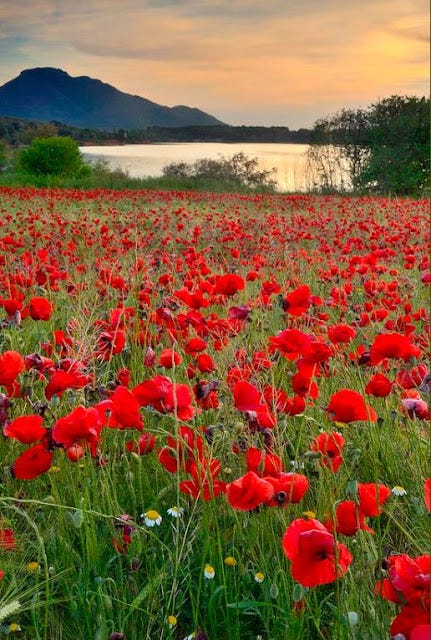Fullbore Friday
Remembrance Day
Yes, in America - for some reason I simply do not agree with - we took what was for the rest of the West, Remembrance Day, and turned it in to Veterans Day.
Yes, we have Memorial Day - which in the larger scheme of things is our "Remembrance Day" - but especially after living for years in Europe, I came to see the 11th of November as something else than what I grew up with.
WWI was such a stupid and unnecessary war. The two empires that dragged the rest of the West and its auxiliaries in to this meatgrinder, the Austro-Hungarian Empire and the Russian Empire, were destroyed by the end of the war. Their culture, empires, and dynasties disintegrated and disaggregated.
The German Empire - who joined simply because it had a treaty and could not stop the momentum to war - was also disintegrated and disaggregated in a way that set the conditions for what could subjectively be described as the world's most educated, cultured, and advanced nation to start the next world war a decade later.
The British Empire - who joined the scrap for reasons not unlike the German Empire - was bled white, and never really recovered.
The French Republic - who again joined in by a sense of duty and was unable to control their momentum to war - like the British were bled white and whose soul was even further weakened to the point she simply could not rise to the occasion when required a decade later.
That does not even begin to describe the horrors of the Italian or - apocalyptic like - the Serbian/Balkan experience.
As Americans, I think we miss a lot by changing the meaning of the 11th of November: the end of the West's civil war that resolved little but did sow the seeds for a century of bloodletting and political nightmares at the throat of our species. Nightmares whose echoes still haunt us.
We don't think enough about The Great War. We should.
So, the American in me says to my fellow veterans ... I see you. The Westerner in me is, just, well, sad and humbled at the absolute sacrifice and bravery of millions, and the utter evil and incompetency of leaders in the early 20th Century who could not stop themselves from destroying almost everything.
So many lives spent to gain the world we have today. Is it better or worse than it would have been otherwise? Not known, but the price we paid is almost incalculable.



Thank you for the excellent piece. My Canadian grandfather fought and flew in The Great War, and now that all of those vets are gone, their memories are left in a shrinking populace. We need to be regularly reminded of what happened and where it led, in many ways shaping events today.
From Canadian John MaCrae 1872-1918
In Flanders fields the poppies blow
Between the crosses, row on row,
That mark our place; and in the sky
The larks, still bravely singing, fly
Scarce heard amid the guns below.
We are the Dead. Short days ago
We lived, felt dawn, saw sunset glow,
Loved and were loved, and now we lie
In Flanders fields.
Take up our quarrel with the foe:
To you from failing hands we throw
The torch; be yours to hold it high.
If ye break faith with us who die
We shall not sleep, though poppies grow
In Flanders fields.